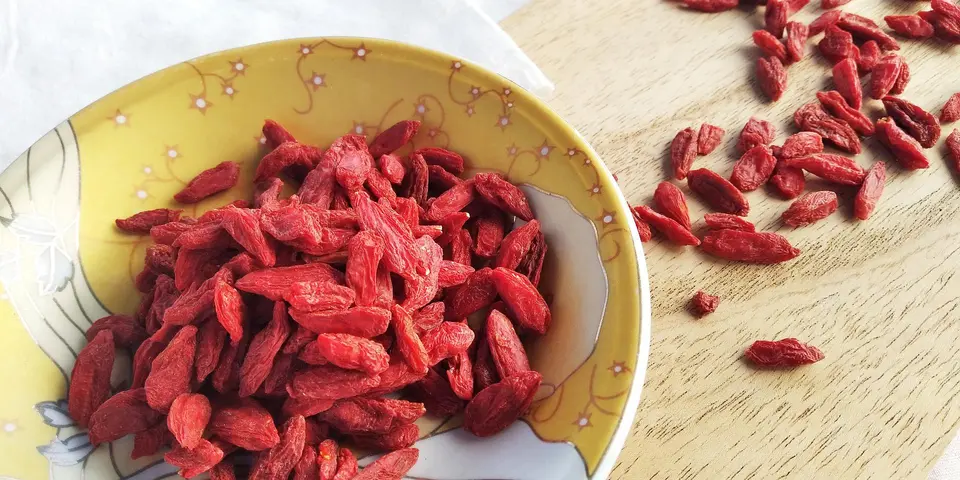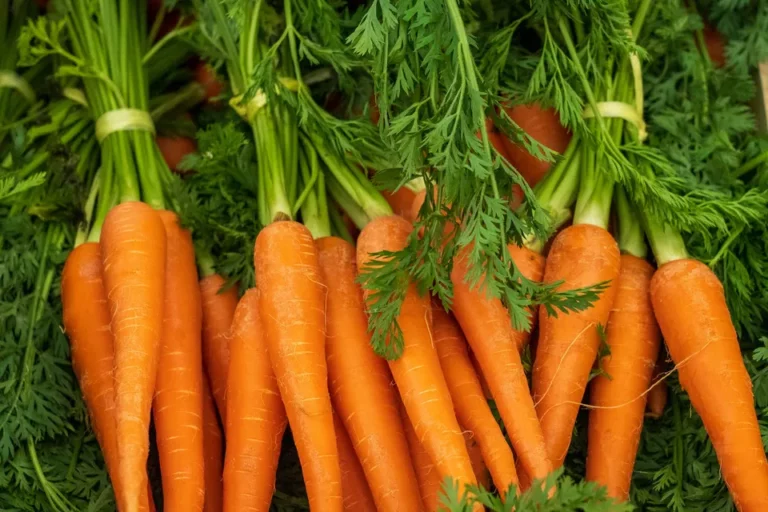Goji Berry Health Benefits: What You Need to Know
Renowned for their sweet and sour taste, Goji Berry, also known as wolfberry or Lycium barbarum, have been culinary staples in Asia for millennia. These small red berries have garnered significant attention for their potential Goji Berry Health Benefits, boasting a rich history of medicinal use.
In recent years, goji berries have gained popularity in the Western world as a superfood and a supplement. They are often sold dried, powdered, or in juice form. But what are the health benefits of goji berries and how do they work? Let’s find out.
Este artículo también está disponible en Español
Discover the Goji Berry Legend
Goji berries have a long and fascinating history that dates back to ancient times. According to legend, the first healers were the Himalayan sages who learned the secrets of nature and shared them with the herbalists of China, Tibet, and India. One of their most prized discoveries was the Goji Berry, a fruit that grew abundantly in the Himalayan valleys and had amazing health benefits.

The goji berry soon spread to other regions and became a symbol of longevity and vitality. In fact, there is a story that during the Tang Dynasty (around 800 AD), there was a well near a Buddhist temple that was surrounded by goji vines. The monks who drank from the well had glowing skin, healthy hair, and strong teeth, even in old age. Some people even believed that goji berries could grant immortality.
To this day, goji berries are celebrated and cherished by many cultures, especially in Central Asia, where they have annual festivals in honor of this remarkable fruit.
Goji Berry Nutrition: Packed with Goodness
Goji berries are not only delicious but also packed with nutrients that contribute to various Goji Berry Health Benefits, such as improved vision, boosted immunity, and healthier skin. Here are some of the Goji Berries Nutritional Facts per one-ounce (28-gram) serving of dried fruit:
- Calories: 98
- Protein: 4 grams
- Fat: 0 grams
- Carbohydrate: 22 grams
- Fiber: 3.6 grams
- Sugar: 12.8 grams
- Iron: 1.9 milligrams (11% of the DV)
- Vitamin A: 150% of the DV
- Vitamin C: 23% of the DV
- Copper: 28% of the DV
- Selenium: 25% of the DV
- Riboflavin: 21% of the DV
As you can see, goji berries are a good source of fiber, iron, and protein, which are important for your digestion, blood health, and muscle growth. They are also rich in vitamin A and vitamin C, which are powerful antioxidants that protect your cells from damage and support your immune system. Additionally, they provide copper, selenium, and riboflavin, which are essential for your metabolism, thyroid function, and energy production.
Unlock the Goji Berry Health Benefits
While the Goji Berry has occupied an important place in traditional Asian medicine for countless generations, the secrets of its nutritional benefits remain a mystery to most of the world. Researchers have recently discovered four primary bioactive polysaccharides in Goji Berries, unique to this fruit, which were called Lycium barbarum polysaccharides (LBP).
LBP are complex carbohydrates that have various pharmacological effects, such as antioxidant, anti-aging, anti-inflammatory, anti-tumor, neuroprotective, and immune-regulating activities. LBP may also help lower blood sugar levels, protect the liver, and improve skin health.
Here are some of the main benefits of goji berries backed by science:
Goji Berry: A Natural Eye Health Booster
Goji berries contain high levels of zeaxanthin, a carotenoid that protects your retina from damage caused by UV light, free radicals, and oxidative stress. Studies have shown that consuming goji berries can increase zeaxanthin levels in your blood and improve your vision quality. Goji berries may also help prevent or slow down age-related eye diseases, such as macular degeneration and glaucoma.

Strengthen Your Immunity with Goji Berry
Goji berries are a great source of vitamin A and vitamin C, two vitamins that are essential for your immune function. Vitamin A helps maintain the integrity of your skin and mucous membranes, which are the first line of defense against pathogens. Vitamin C helps stimulate the production and activity of white blood cells, which fight infections.
LBP, or Lycium barbarum polysaccharides, can boost your immune system by activating and regulating various immune cells and molecules, such as macrophages, dendritic cells, natural killer cells, T cells, cytokines, and antibodies. LBP may modulate the immune system by binding to specific receptors on the surface of immune cells and triggering signaling pathways.
Goji Berry: A Potential Cancer Fighter
Goji berries have powerful antioxidant properties that can help prevent DNA damage and cell mutation caused by free radicals. Free radicals are unstable molecules that can cause inflammation and chronic diseases, such as cancer, heart disease, and diabetes. Goji berries also contain phytochemicals, such as polysaccharides and flavonoids, that can inhibit tumor growth and boost the effectiveness of cancer treatments.
Radiant Skin with Goji Berry
Goji berries contain beta-carotene, another carotenoid that is known for its ability to improve skin health. Beta-carotene is converted into vitamin A in your body, which helps regulate skin cell growth and repair. Beta-carotene also has anti-inflammatory and photoprotective effects, meaning it can reduce skin irritation and prevent sun damage. Additionally, goji berries provide hydration and collagen to your skin, which can improve its elasticity and prevent wrinkles.

Goji Berry: Sweet Benefits for Blood Sugar
Goji berries have a low glycemic index (GI), which means they do not cause a rapid spike in your blood sugar levels after you eat them. Instead, they provide a steady source of energy and help you feel full longer. Goji berries may also improve insulin sensitivity and glucose metabolism, which are important factors for preventing or managing type 2 diabetes.
Combat Anemia with Goji Berry
Goji berries are a great source of iron, a mineral that is essential for the production of hemoglobin, a protein that carries oxygen in your blood. Iron deficiency can lead to anemia, a condition that causes fatigue, weakness, pale skin, and shortness of breath. Anemia can affect anyone but is more common among women, children, vegetarians, and vegans. Eating goji berries can help you meet your daily iron needs and prevent or treat anemia.
Enhance Mood and Sleep with Goji Berry
Goji berries may have positive effects on your mental health and sleep quality by affecting various aspects of your brain and body. They contain antioxidants, phytochemicals, magnesium, and thiamine, which can protect your brain cells, modulate your neurotransmitters, relax your muscles, and prevent or reverse deficiency symptoms.

They may also affect the gut microbiota, which plays an important role in the communication between the gut and the brain. Studies have shown that goji berries can reduce anxiety and depression-like behaviors in animals and humans and improve sleep quality and energy levels.
Protect Your Liver with Goji Berry
Goji berries may have protective effects on your liver, which is the main organ responsible for detoxifying your body. It contain antioxidants and phytochemicals that can help prevent oxidative stress and inflammation in the liver cells, which are common causes of liver injury. Additionally, Goji berries may also modulate the gut microbiota, which can influence the levels of lipopolysaccharides, and endotoxins that can damage the liver. Studies have shown that goji berries can alleviate acute liver injury induced by toxins or alcohol.
Delicious Ways to Enjoy Goji Berry
Goji berries are versatile and easy to incorporate into your diet. You can eat them raw as a snack or add them to your salads, smoothies, yogurt, oatmeal, granola bars, or baked goods. You can also soak them in water or tea to rehydrate them and make them softer.

Alternatively, you can drink goji berry juice or take goji berry supplements in the form of capsules, powders, or extracts. However, be aware that these products may have added sugars or preservatives and may not contain the same amount of nutrients as whole goji berries.
Here are some tips and facts to help you enjoy goji berries:
- Choose organic goji berries whenever possible to avoid pesticides or chemicals.
- Store dried goji berries in an airtight container in a cool and dry place to preserve their freshness and quality.
- Look for goji berry products that have a certification or a seal of quality from a reputable organization, such as the USDA, the Non-GMO Project, or the Vegan Society.
- Experiment with different goji berry recipes and products to find your favorite way to consume them.
- Remember that goji berries are not a magic bullet for your health and should be part of a balanced and varied diet.
Is Goji Berry Safe for Everyone? Possible Side Effects and Warnings
Goji berries are generally safe for most people when consumed in moderation. However, some people may experience allergic reactions or digestive issues, such as nausea, diarrhea, or bloating after eating them.
Goji berries may also interact with certain medications, such as blood thinners, blood pressure drugs, diabetes drugs, or anticoagulants. If you are taking any of these medications, consult your doctor before adding goji berries to your diet.
Additionally, pregnant or breastfeeding women should avoid goji berries as there is not enough evidence of their safety during these periods.
READ OUR PRODUCT REVIEW:
The Ultimate Green Juice Supplement
If you want to learn more about our best choice of green juice supplement, check out our honest and detailed review of Super Green Juice by Touchstone Essentials. This product contains 44 organic superfoods, including Goji Berries, that can help you improve your energy, immunity, and health. Click here to read our review and find out how you can get this amazing product for yourself.
Conclusion: Unleash the Full Potential of Goji Berry Health Benefits
Goji berries are nutritious and delicious fruits that can offer many health benefits, such as protecting your eyes, boosting your immune system, preventing cancer, promoting healthy skin, supporting blood sugar regulation, preventing anemia, and protecting your liver. They are also easy to use and can be eaten raw or added to various dishes and drinks.
Goji berries are a superfood that provides many nutrients, vitamins, minerals, antioxidants, and beta-carotene and contains unique phytochemicals, such as polysaccharides, and zeaxanthin that provides Goji Berries with powerful properties.
However, goji berries may also have some side effects and interactions with certain medications, so be careful if you have allergies, digestive issues, or medical conditions. Always consult your doctor before making any changes to your diet or taking any supplements.
If you want to learn more about goji berries and other superfoods, check out our blog for more articles and tips. And don’t forget to share this post with your friends and family who might benefit from it. Thank you for reading!








A very beautiful material about the history, the legend, the benefits of the Goji Berry fruit, a very clear explanation of the main points and its super benefits for a better health, I would like to try it, but is it recommended to be given to children? Very helpful article on this diamond of nature.
Thank you for your kind words and your interest in Goji Berries. I’m glad you found the article helpful and informative. Goji berries are generally safe for children, as long as they are not allergic to them or other berries like strawberries or blueberries, or have any medical conditions that may interact with them. You can start with small amounts and monitor for any adverse reactions. Goji berries are rich in antioxidants, vitamins, and minerals that can support your child’s immune system, growth, and development.
You may also consider consulting your pediatrician before introducing any new food to your child’s diet.
I hope you and your family enjoy the benefits of this amazing fruit!
As someone who is new to the topic of goji berries and their health benefits, I found your article quite informative. The history and nutritional facts about goji berries were especially fascinating to me. I’ve heard that goji berries are considered a superfood and can provide numerous health benefits, but I’m curious to know more about their potential side effects and if there are any precautions I should take before incorporating them into my diet.
You mentioned that goji berries are generally safe for most people when consumed in moderation, but some individuals may experience allergic reactions or digestive issues. Can you elaborate on what could cause these reactions in certain people? Are there any specific groups of individuals who should be cautious about consuming goji berries?
I also noticed that goji berries may interact with certain medications, such as blood thinners, blood pressure drugs, diabetes drugs, or anticoagulants. How does this interaction occur, and what are the potential risks for those who are on such medications? Is it advisable for individuals taking these medications to completely avoid goji berries, or is there a safe way to consume them in combination with these medications?
Furthermore, you mentioned that pregnant or breastfeeding women should avoid goji berries due to the lack of evidence on their safety during these periods. Is there a specific reason why goji berries are not recommended for pregnant or breastfeeding women? Could you explain what potential risks may be associated with consuming goji berries during pregnancy or breastfeeding?
Thank you for shedding light on the health benefits of goji berries and providing information about their safety. I look forward to learning more about how to incorporate goji berries into my diet while considering these potential precautions.
Hi, thank you for your comment. I’m happy to hear that you found my article informative and fascinating. I appreciate your curiosity and interest in learning more about Goji Berries, their great benefits, and their potential side effects and precautions. I appreciate your questions. Here is what I can tell you:
First, allergic reactions to Goji Berries are rare, but possible, especially for people who are allergic to other fruits, such as peaches, apples, cherries, or strawberries. Some of the symptoms of an allergic reaction include itching, swelling, hives, rash, difficulty breathing, or anaphylaxis (a severe and life-threatening reaction). If you have a history of fruit allergies, you should consult your doctor before eating goji berries or avoid them altogether.
Digestive issues, such as diarrhea, indigestion, nausea, and vomiting, may occur in some people who eat Goji Berries on an empty stomach or in large quantities. This is because Goji Berries contain a lot of fiber and sugar, which can draw water into the intestines and cause loose stools or gas.
Second, Goji Berries may interact with certain medications because they may have anticoagulant effects, meaning they can prevent blood from clotting properly. This can interfere with blood thinners, such as warfarin, and increase the risk of bleeding or bruising. If you are taking warfarin or any other blood thinner, you should avoid Goji Berries or talk to your doctor about adjusting your dosage.
Goji Berries may also lower blood sugar and blood pressure levels, which can be beneficial for some people, but harmful for others. If you have diabetes or hypertension and are taking medications to control them, such as metformin or lisinopril, eating goji berries may cause your blood sugar or blood pressure to drop too low. Therefore, you should monitor your blood sugar and blood pressure levels closely if you eat Goji Berries and consult your doctor about changing your medication if needed.
Third, Goji Berries can be highly nutritious for the mother and the baby, but eating too many Goji Berries during pregnancy can be harmful, as they may interfere with blood clotting, hormone levels, and medication effects. In addition, one compound found in Goji Berries called Betaine has been used to induce abortion and menstruation, and may also affect the hormone levels in pregnant or breastfeeding women. Although there is not enough evidence of these risks associated with Goji Berrie’s consumption, it is better to avoid them until more research is done. Anyway, consult your doctor before adding them to your diet.
I hope this helps you to understand the benefits and risks of goji berries and how to consume them safely while considering these potential precautions.
Best wishes, Pablo
Your article on the health benefits of Goji Berries was a fascinating read. I was particularly interested in the section about the Buddist Monks in the Tang Dynasty and their longevity. I’m in my late 70s, it is too late to start with Goji Berries to improve my quality of ageing? I do hope not, because they sound like little miracle workers. Best wishes, Jenni.
Hi Jenni, thank you for your kind comment. I’m glad you enjoyed reading my article on the health benefits of Goji Berries. I appreciate your interest in the section about the Buddist Monks in the Tang Dynasty and their longevity. I find Goji Berries a nutritious and delicious fruit with a fascinating history.
To answer your question, it is never too late to start with Goji Berries to improve your quality of aging. Goji Berries are rich in antioxidants, vitamins, minerals, and phytochemicals that can help protect your cells from damage, boost your immune system, lower your cholesterol, and improve your vision. They also contain amino acids that can help with muscle growth and repair, and polysaccharides that can enhance your mood and memory.
Goji Berries are easy to incorporate into your diet. You can eat them raw, dried, or cooked. You can also add them to your smoothies, salads, cereals, yogurt, or baked goods. The recommended daily intake of Goji Berries is about 10 to 30 grams, but you can adjust it according to your preference.
However, Goji Berries alone are not enough to keep you looking and feeling younger. You also need to have a balanced and varied healthy diet, using organic products when possible. And avoid or limit foods that make you age faster, such as Ultra-processed Foods. These foods can cause inflammation, dehydration, weight gain, tooth decay, and free radical damage in your body.
I hope this helps you to enjoy the benefits of Goji Berries and other healthy foods. Please let me know if you have any other questions or feedback.
Best wishes, Pablo